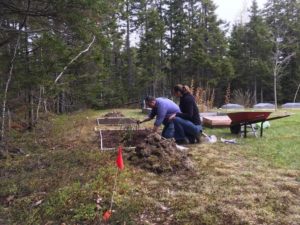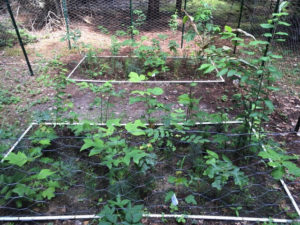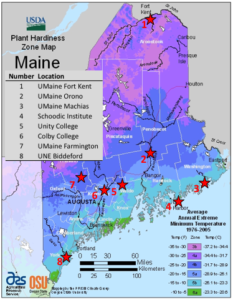How will the forests of Maine look in the future? Which tree species will thrive and which may decline? Will we continue to see a spruce and fir dominated landscape in the north and Downeast or will more warm-adapted species such as oaks, maples, and cherry overtake the forest?
To address these questions, researchers at eight college campuses across Maine are conducting a three-year experiment to evaluate the growth of different trees. In Spring 2018, we planted 288 seedlings of 12 eastern North American tree species at each site. We chose coniferous and deciduous species that already are present throughout the state, reach their southern or northern limit in the state, or grow just to the south of Maine. Some are projected to increase in the future while habitat for others is expected to decrease.


The same species were planted at each site, and all research plots (“common gardens”) have similar light conditions; half the plots have the same bagged topsoil. Thanks to Coast of Maine soil company for supporting this research and providing soil to all sites at a discount! For the next three years, we will track seedling growth, survival, and phenology (timing of leaf out, flowering, etc.) This study design helps isolate local climate as a major difference among sites and enables examination of seedling responses to a wide range of climate conditions across Maine
Tree species included in the Common Campus Tree Experiment and their projected habitat suitability in 2100 (based on analyses in Fisichelli et al. 2014 and Janowiak et al. 2018).

Project Scientists
PI
Nicholas Fisichelli, Schoodic Institute at Acadia National Park
Contact: NFisichelli@SchoodicInstitute.org
Co-PIs
Andrew Barton, University of Maine, Farmington
Justin Becknell, Colby College
Dylan Dillaway, Unity College
Eric Jones, University of Maine, Machias
Thomas Klak, University of New England
Neil Thompson, University of Maine, Fort Kent
YongJiang (John) Zhang, University of Maine, Orono